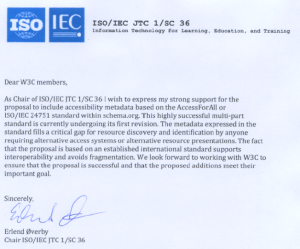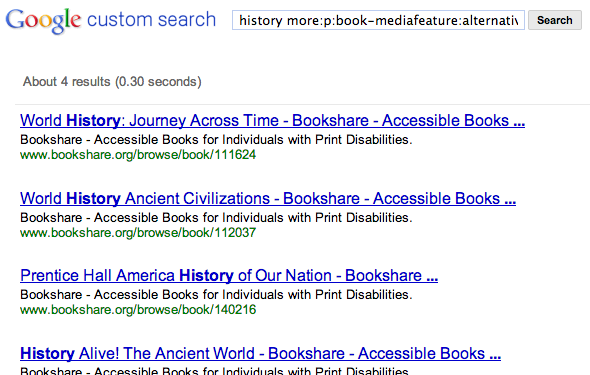There’s nothing like a return from summer and a Dublin Core metadata conference, where people are face to face in the same location, to get people reading and paying attention to our specification.
Once people read the specification, and avail themselves of the more detailed resources section and other content on the website, their comments come to mind. And many people have kept their comments to themselves. No longer! The email traffic on our Google group spiked yesterday, as well as the W3C public vocabs list. It began with an email from George Kerscher of DAISY and IDPF, which sparked emails by Charles McCathie Nevile, which became public on the list in a reply from Gerardo Capiel. Notes of support from CEDS and ISO helped increase interest as well. You can join the thread from there.
Get involved now. If you’ve been dozing on the sidelines over the summer, or had an opinion and said “I don’t know if anyone cares,” this is the time to be heard. Here are some suggestions for things you can do:
- Listen to the dialog that is taking place and participate. The discussion is taking place on both the w3c-public-vocabs list and our Accessibility Metadata Google group. If you respond to these, please copy both groups, to keep everyone in the conversation.
- Express your public support for this effort. Other groups, like the DIAGRAM Center have blogged on this topic. Two possible methods of action are Respond to the original Accessibility Metadata Draft Proposal Submission and tell the W3C and schema.org why this initiative is important to you. Or you can email the list directly and reference the proposal itself.
- Join our mailing list, as we will have a few revisions to the specification over the next few weeks. If you’re not on the Google group or W3C mailing lists, join the email list for this website, in the upper right corner of this page. We’ll inform you of changes.
Your critical skills and support are appreciated in advance. If you want to tell others about this, use the shortlink http://goo.gl/DBGZ2v

